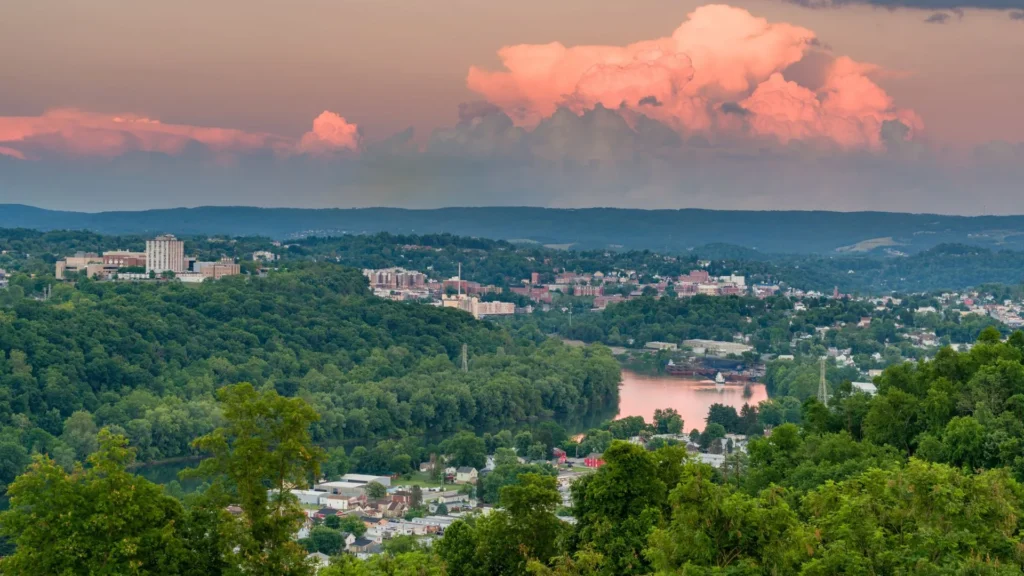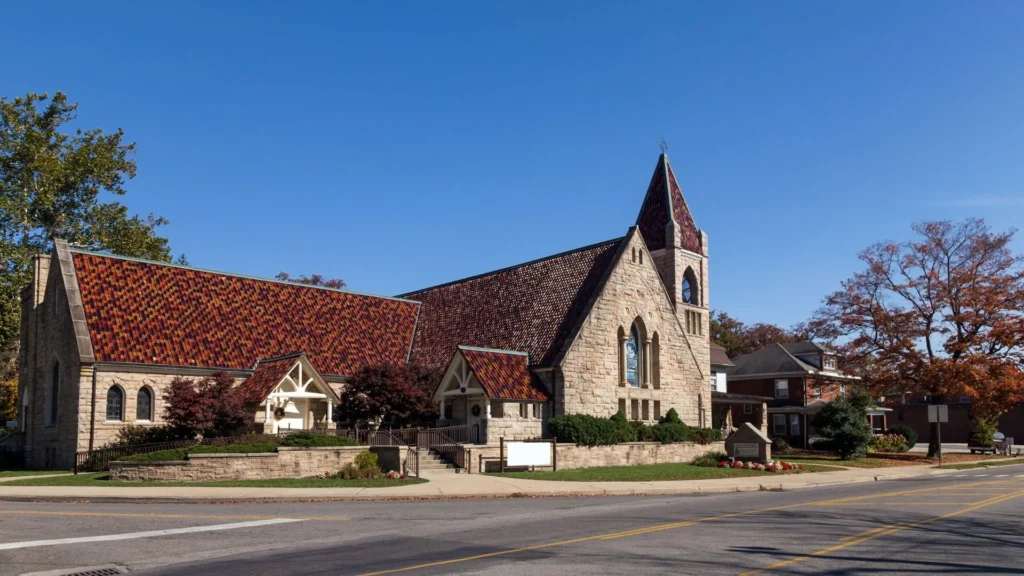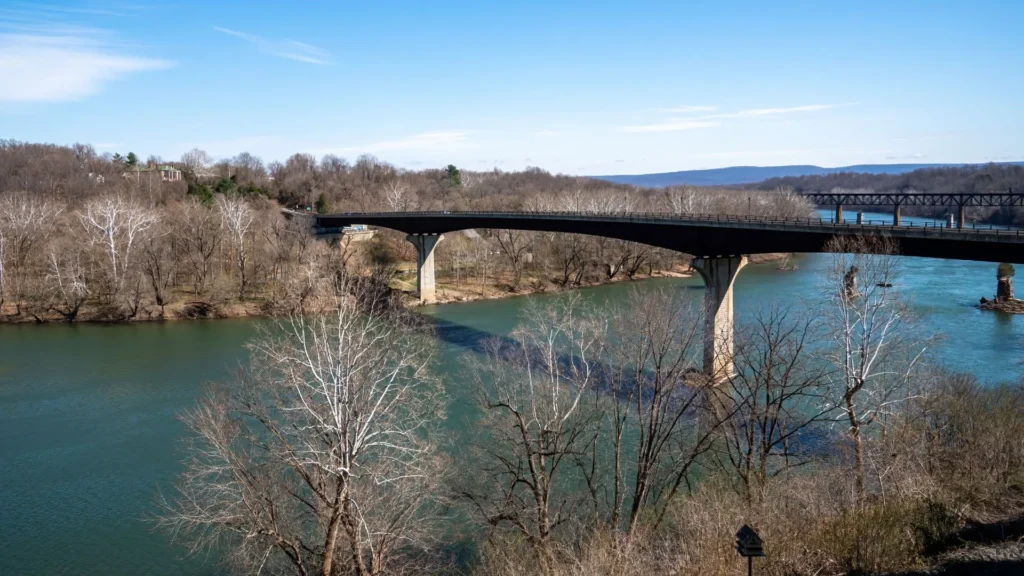
West Virginia Relocation Guide
Are you considering relocating to West Virginia? Known as the Mountain State, West Virginia offers a unique blend of stunning natural beauty, rich history, and a strong sense of community. Whether you’re drawn to the charming small towns, the vibrant cultural scene, or the breathtaking landscapes, West Virginia has something for everyone. This comprehensive West Virginia relocation guide will provide you with all the essential information to make your move smooth and successful. From understanding the state’s geography and climate to finding the perfect place to live, we’ve got you covered.

Why Move to West Virginia?
West Virginia is an attractive destination for many reasons. Here are some key benefits of moving to West Virginia:
- Natural Beauty: With its mountains, forests, and rivers, West Virginia’s landscapes are breathtaking.
- Quality of Life: Excellent healthcare, top-rated schools, and safe communities.
- Outdoor Activities: Year-round outdoor activities, including hiking, fishing, skiing, and rafting.
- Cultural Richness: A vibrant arts scene, local festivals, and rich history.
- Strong Community: West Virginians are known for their friendliness and strong sense of community.
- Affordable Living: A relatively low cost of living compared to many other states.
Understanding West Virginia’s Geography and Climate
West Virginia’s diverse geography and climate contribute to its unique charm. Here’s what you need to know:
Geographic Regions
- The Allegheny Highlands: Known for its mountainous terrain, forests, and outdoor recreational activities.
- The Eastern Panhandle: Features historic towns like Harpers Ferry and Martinsburg, with a mix of rural and urban areas.
- The Ohio River Valley: Includes cities like Wheeling and Parkersburg, known for their industrial history and scenic beauty.
- The Potomac Highlands: Known for its rugged landscapes, including the Monongahela National Forest and the Canaan Valley.
- The Southern Coalfields: Rich in mining history, with towns like Beckley and Bluefield offering a mix of cultural attractions and outdoor activities.
Climate
- Four Seasons: West Virginia experiences all four seasons, with cold winters and warm summers.
- Winter Weather: Winters can be harsh, especially in the mountains, with significant snowfall.
- Moderate Summers: Summers are generally warm and pleasant, ideal for outdoor activities.
- Microclimates: Due to its diverse geography, West Virginia has many microclimates, with variations in temperature and precipitation depending on elevation and region.
Cost of Living in West Virginia
West Virginia offers a relatively low cost of living, making it an attractive option for many. Here are some key points to consider:
- Housing: Home prices and rental rates are generally lower than the national average, making homeownership more accessible.
- Utilities: Utility costs can be higher in winter due to heating needs, but are manageable with proper insulation and energy-efficient practices.
- Groceries and Healthcare: These costs are generally on par with the national average, ensuring daily living expenses remain reasonable.
Finding a Place to Live
Choosing the right place to live in West Virginia depends on your lifestyle, work, and personal preferences. Here are some popular options:
- Charleston: The state capital, offering a mix of urban amenities, cultural attractions, and historic sites.
- Morgantown: Home to West Virginia University, offering a strong sense of community and educational opportunities.
- Huntington: Known for its friendly atmosphere, good schools, and cultural events.
- Martinsburg: Offers a mix of urban and rural living with a strong sense of community.
- Beckley: Known for its outdoor activities and historical attractions.
- Wheeling: Offers a blend of urban amenities and access to outdoor activities, with a strong sense of community.
- Smaller Towns and Rural Areas: For a quieter lifestyle, consider towns like Lewisburg, Shepherdstown, or Elkins.
Employment Opportunities
West Virginia’s job market is diverse and robust, with opportunities in various sectors. Key industries include:
- Healthcare: West Virginia has numerous hospitals and medical research institutions.
- Education: The state offers opportunities in public and private schools, as well as higher education institutions like West Virginia University and Marshall University.
- Tourism and Hospitality: Major tourist destinations and a thriving hospitality industry.
- Energy and Mining: The state is known for its coal, natural gas, and renewable energy sectors.
- Manufacturing: West Virginia has a strong manufacturing sector, producing everything from chemicals to automotive parts.
- Technology: A growing tech sector, particularly in the Morgantown area.
Education and Schools
If you have children, understanding West Virginia’s education system is crucial. The state offers a mix of public, private, and charter schools, with a strong emphasis on academic excellence. Higher education options include West Virginia University, Marshall University, Shepherd University, and several community colleges.
Healthcare and Medical Facilities
Access to quality healthcare is essential when relocating. West Virginia has a range of medical facilities, from large hospitals in urban areas to smaller clinics in rural regions. Major cities like Charleston, Morgantown, and Huntington have well-equipped hospitals, while telemedicine services are becoming increasingly available for those in remote areas.
Transportation in West Virginia
West Virginia’s transportation system is well-developed, making it easy to get around. Here’s what you need to know:
- Driving: A car is essential in most parts of West Virginia, especially if you live outside urban areas. The state has a well-maintained network of highways and roads.
- Public Transit: Public transportation options are limited, but larger cities like Charleston and Morgantown have bus systems.
- Air Travel: Major airports include Yeager Airport in Charleston and Morgantown Municipal Airport, providing convenient access to domestic flights.
- Commuter Services: West Virginia offers various commuter services, including regional transit systems and ride-sharing programs.
Preparing for the Weather
West Virginia’s weather can be quite variable, so it’s important to be prepared for different conditions:
- Winter Gear: Invest in good-quality winter clothing, especially if you’re moving to the mountainous regions.
- Vehicle Preparation: Ensure your vehicle is equipped for winter driving, with snow tires or chains if necessary.
- Home Preparation: Properly insulate your home and ensure your heating system is in good working order.
Embracing the West Virginia Lifestyle
Living in West Virginia offers a unique and fulfilling lifestyle. Here are some tips to help you adjust:
- Outdoor Activities: West Virginia is a playground for outdoor enthusiasts, offering activities like hiking, fishing, boating, skiing, and white-water rafting.
- Community Involvement: West Virginians are known for their friendliness and strong sense of community. Get involved in local events and activities to build connections.
- Local Culture: Embrace the local culture by exploring West Virginia’s history, attending cultural festivals, and supporting local businesses.
Challenges of Living in West Virginia
While West Virginia offers many benefits, it also presents some challenges:
- Winter Weather: Cold winters, especially in the mountainous regions, can be tough to adapt to.
- Limited Public Transit: Outside of larger cities, public transportation options are limited, making a car necessary.
- Rural Isolation: Some areas are quite remote, which can lead to feelings of isolation if you’re not used to rural living.
- Economic Challenges: Some regions face economic challenges, particularly in areas heavily dependent on coal mining.
Conclusion
Relocating to West Virginia is a decision that promises adventure, opportunity, and a high quality of life. By understanding the geography, climate, cost of living, and employment opportunities, you can better prepare for the move. Embrace the outdoor lifestyle, get involved in your community, and enjoy all that West Virginia has to offer. Whether you’re drawn by the stunning natural landscapes, the rich cultural heritage, or the friendly communities, West Virginia welcomes you with open arms.
In summary, moving to West Virginia requires thorough planning and preparation, but the rewards of living in this incredible state make it all worthwhile. From the bustling cities to the serene countryside, West Virginia is a place like no other. So pack your bags, prepare for the adventure of a lifetime, and get ready to experience the charm and beauty of West Virginia.
Search by State
ExploreWestVirginia.US
ExploreWestVirginia.US is a division of Explore America Holdings, LLC. All information on this website is for informational and entertainment purposes only.









